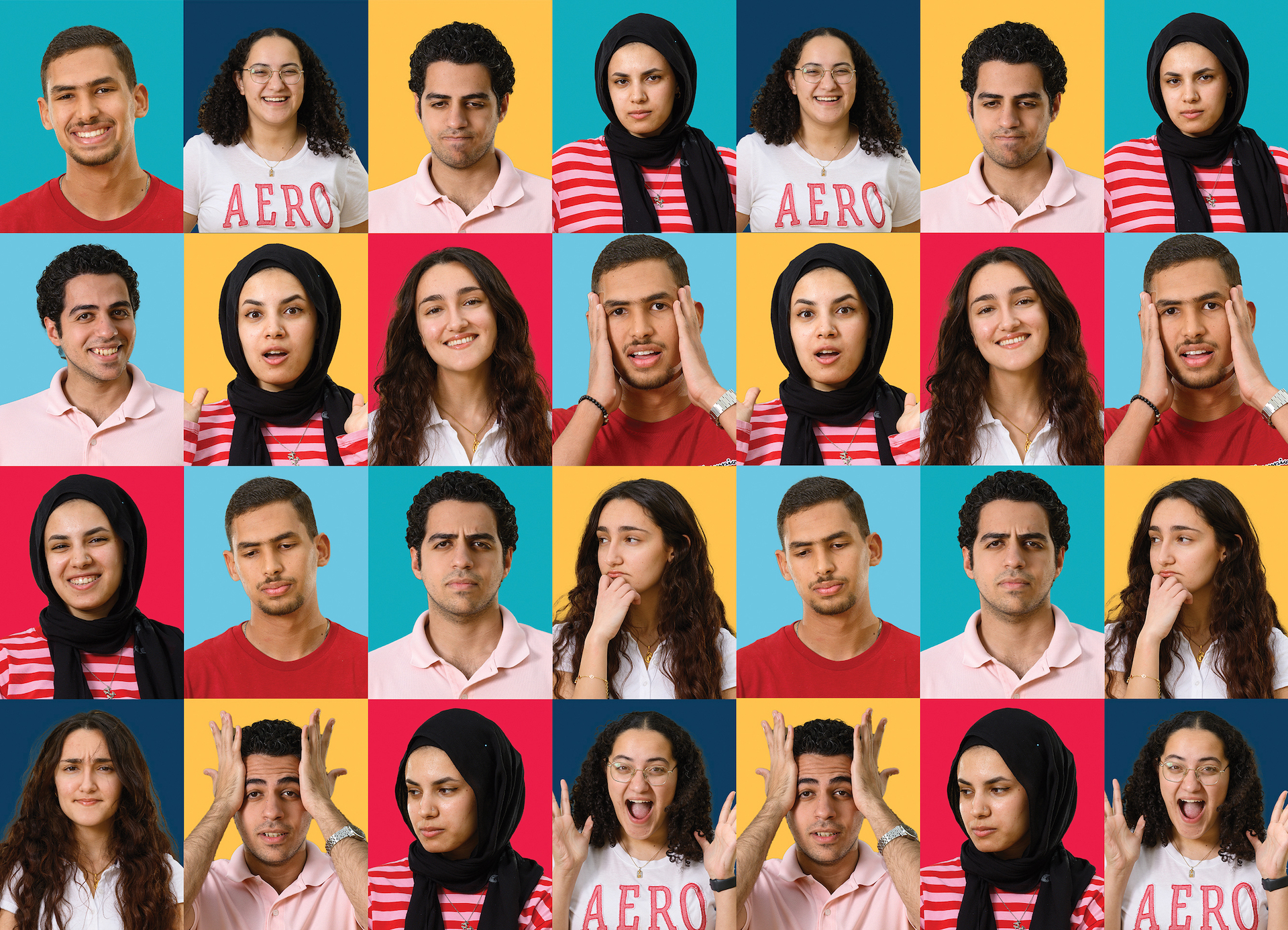We all have moments when we are overcome by our own emotions and struggle to respond. We have snapped at a friend in a moment of frustration or smiled while fighting back tears over something that happened at work. Most of us have had an experience where we pulled back from a group or person because we felt hurt or rejected by someone's actions.
"Emotional regulation is how we manage the experience and expression of our emotions," explains Lameese Eldesouky, assistant professor of psychology. "There are many different strategies we use to manage our emotions, and each varies in terms of how it can affect our social relationships and our health."
Eldesouky has conducted extensive research on emotional regulation, exploring the factors that predict how people regulate their emotions, when and how emotional regulation strategies are beneficial, and how to effectively measure emotional regulation.
"My interest in the topic began in an undergraduate psychology class when I saw before-and-after brain scans of someone reframing their thoughts about an emotional situation," she recalls. "I was amazed with how just simply changing the way we think could not only change how we feel, but also have a big impact on our body."
Eldesouky says that emotional regulation has long been a fascination for anyone interested in studying the human mind and experience. The first documented study on the topic was published by child development researchers in the 1980s. Over time, the body of research has grown, and technological advances have also made it possible to look more deeply at biological questions and the brain's role in emotional regulation.
"In many ways, scientists today are building on the questions first asked by philosophers and religious thinkers. We are now pushing to understand the nuances of emotional regulation, such as when a strategy is most beneficial and for whom," Eldesouky says.
The work of these experts can help us learn to control our emotions more effectively. With strong emotional regulation skills, we can overcome challenges in our social life with more ease, cultivate better mental health and forge stronger relationships with the people in our lives.

Common Emotional Regulation Strategies: Finding the Best Fit
Most people are probably familiar with some of the strategies we commonly use to manage our emotions as we experience them. How and when we employ these strategies can have a profound impact on our lives.
Suppression involves bottling up emotions (usually negative ones). We all do this sometimes, but research shows that it can often be harmful. "Doing it frequently can create emotional distance," Eldesouky notes. "It can also be physically taxing on the body, leading to health problems like increased blood pressure and elevated heart rate."
Disengaging involves moving away from a situation to reduce its emotional intensity. At a family gathering, you might leave the room rather than listen to a relative's tasteless political rant. Or you might just focus hard on thinking about something else.
As the name suggests, acceptance involves "accepting a situation you are in or how you feel about it," Eldesouky says. You might work to make peace with the fact that you disagree with your relative. Or you could practice reappraisal by reframing your thinking about the situation in a more constructive way. Maybe encountering this relative becomes your motivation to support causes that you care about. Social sharing involves genuinely expressing your emotions with others.
Sometimes, we fail to regulate our emotions or choose a strategy that does more harm than good. For example, hiding our emotions can often create a distance between us and others, taking a toll on our health. In certain cases, we might choose to regulate our emotions in a certain way to achieve "prosocial goals," meaning we regulate our emotions to benefit other people. "Doing this can sometimes negatively impact us personally, but it can also be a way that we care for each other," Eldesouky says.
Putting It All Together
No single strategy is entirely good or bad. Even suppression can be appropriate in certain moments. For example, we might use it to keep ourselves from laughing at a funeral. Instead, we should work on leveraging different strategies at different moments.
Eldesouky summarizes, "If people want to feel better in the short term, then the most effective strategies will usually involve disengaging from the situation. However, once things have calmed down, it will be better in the long term to use strategies that involve engaging with the situation, such as reappraisal and acceptance."
As with any skill, Eldesouky reminds us that with emotional regulation, practice makes perfect: "We can improve our emotional regulation skills by practicing becoming more aware of our emotions and even identifying the sources of those emotions." Eldesouky adds, "I would encourage people to think about different strategy options, identify which of these are available, and think through the pros and cons of each. Which option might make them feel better, if feeling better is their goal?"
"We are now pushing to understand the nuances of emotional regulation, such as when a strategy is most beneficial and for whom."
Influences on Emotional Regulation: Culture and Religion
Culture shapes the extent to which people use different emotional regulation strategies, and social norms can help determine when
a strategy is culturally appropriate to use. Although most of the research on emotional regulation has been done in the United States, there is growing research that cultural differences in emotional regulation might not be as large as we think. It's hard to say exactly why that is. It could be that the effects of globalization and enhanced cultural exposure have made cultures more similar over time. It could also be that cultural differences in emotional regulation were never that large to begin with. It is hard to know for sure without having earlier studies of emotional regulation across cultures to make comparisons over time.
Religion is not typically included in the research on emotional regulation. While religion is not the same as culture, it is an important part of many cultures, including Egypt. Religion is important to consider in the study of emotional regulation because it shapes how people view the world and process their experiences, including emotional ones. For instance, people could use religious rituals such as prayer to regulate their emotions. Even neutral strategies, such as reappraisal, can be shaped by religion. For example, a person could reframe their perception of a challenging situation by attributing it to God's will.
-By Katie Marie


